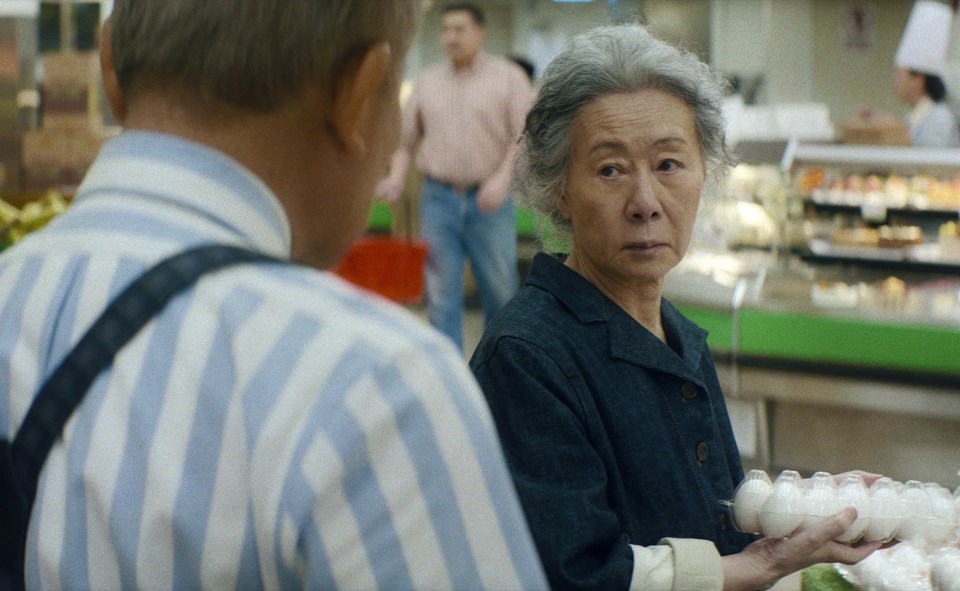SEOUL, South Korea (AP) ŌĆö The second season of ŌĆ£Pachinko,ŌĆØ opening Friday, delicately captures the plight of ethnic Koreans brought to Japan during colonial rule and their descendants, exploring themes of home and identity through several generations.
The award-winning series, based on the New York Times bestselling novel, returns to Apple TV+ with eight episodes that follow four generations of an immigrant Korean family living in Japan since before World War II. The star-studded cast includes Oscar-winning actor Youn Yuh-jung and Korean actor Lee Minho.
Many ethnic Koreans were brought to Japan, often forcibly, to work in mines and factories during the countryŌĆÖs 1910-1945 colonial rule of Korea. They were treated as second-class citizens and faced discrimination, which the series portrays.
Youn, who plays the older version of protagonist Sunja, said she was largely unfamiliar with the situation of ethnic Koreans in Japan ŌĆö known as Zainichi Koreans ŌĆö before she spoke with actor Soji Arai, who plays Mozasu, the son of her character. Arai was born into an ethnic Korean family in Japan.
ŌĆ£It broke my heart and I cried inside because I felt so bad after hearing about their stories,ŌĆØ Youn told The Associated Press.
The second season continues SunjaŌĆÖs story as she struggles to feed her sons Noa and Mozasu during the war.
In the series, ethnic Koreans face discrimination generation after generation. In one episode, a Japanese worker at a wartime Nagasaki factory refers to his Korean colleagues as ŌĆ£roachesŌĆØ that ŌĆ£keep multiplying.ŌĆØ
Decades later, Sunja's grandson Solomon nearly explodes at a Japanese store clerk whom he thinks is showing discrimination over his grandmother's Korean heritage. He senses that discrimination will follow him even after attaining academic and professional credentials.
The series is in Japanese, Korean and English with subtitles and is based on Korean-American author Min Jin Lee's novel, titled after a Japanese game played in arcades where ethnic Koreans often worked in jobs typically shunned by Japanese.
Youn said she portrayed Sunja as ŌĆ£intimidated, scared and feeling small,ŌĆØ believing discrimination is her fault due to endless exposure to it. Youn added that she has felt similarly in her own life, having an ŌĆ£inferiority complexŌĆØ over her struggles with the English language.
Around half a million ethnic Koreans sill live in Japan. Although many have become naturalized Japanese citizens, about half a million have not and are officially considered foreigners.
Executive producer and showrunner Soo Hugh said she was ŌĆ£nervousŌĆØ about how the show would be received among Zainichi Koreans, but that she was happy to learn that it had resonated ŌĆ£really emotionally."
ŌĆ£This is their story,ŌĆØ she told the AP, adding that she had to unlearn previous history education to understand ŌĆ£from the point of view of the people on the ground,ŌĆØ including those in Nagasaki.
When Youn was asked if she was concerned about playing a role in a series touching on sensitive parts of East Asian history, Youn said no. ŌĆ£We are talking about the past,ŌĆØ she said. ŌĆ£I am not a politician, so it doesnŌĆÖt matter to me.ŌĆØ
Hugh said the series gradually transitions from the familyŌĆÖs day-to-day survival to answering big questions about their shifting identities: ŌĆ£What does it mean to live a good life ... knowing that Japan is now my home?ŌĆØ
These are familiar questions to Hugh, who is Korean American.
ŌĆ£So many Korean immigrants come to America and think, ŌĆÖWeŌĆÖll make a better life, but IŌĆÖm not going to die in America because Korea is my home. ... You know, a year goes by, then a year, another year, and then another year,ŌĆØ Hugh said.
ŌĆ£It must feel really sad to know that youŌĆÖre not going to die where you want to die. And thatŌĆÖs, I think, something so many of our characters confront in this show," she said.
Youn said that people will always carry their identity with them despite circumstances. ŌĆ£I see many people who try their best to erase (their Korean identity),ŌĆØ she said. ŌĆ£I really donŌĆÖt like that. There is no need to do that.ŌĆØ
ŌĆ£PachinkoŌĆØ season two is available on Apple TV+ platforms.
Juwon Park, The Associated Press


